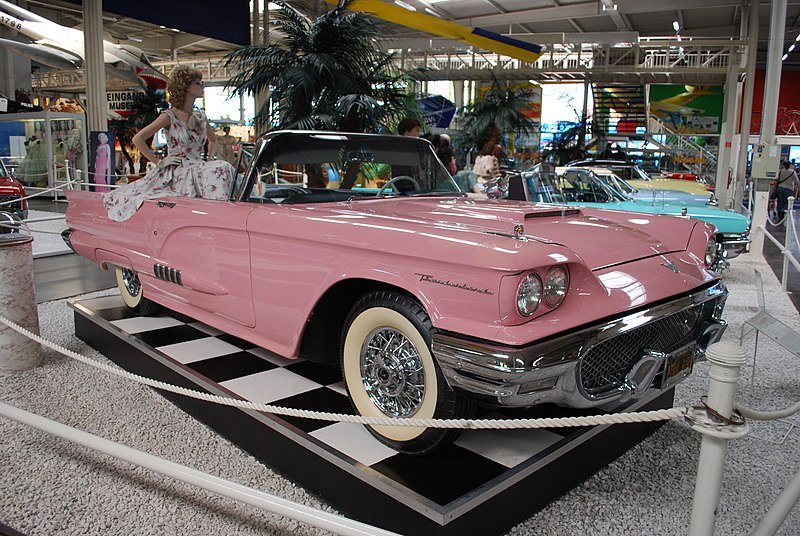The Allure of Luxury Cars: A Comprehensive Guide to Premium Automotive Excellence

Luxury cars represent the pinnacle of automotive design, comfort, and performance. Known for their sophisticated craftsmanship, advanced technology, and powerful engines, these vehicles cater to individuals who seek more than just transportation – they desire an experience. Whether you’re an enthusiast dreaming about owning a luxury car or someone considering an upgrade, here’s a deep dive into the world of high-end automobiles.
1. What Defines a Luxury Car?
A luxury car goes beyond basic transportation. These vehicles are engineered with attention to every detail, from the plush interiors to cutting-edge technology and safety features. Typically produced by renowned automakers, luxury cars embody elegance, exclusivity, and status.
- Premium Materials: High-quality materials such as fine leather, real wood, aluminum, and carbon fiber are common in luxury cars.
- Advanced Technology: Expect state-of-the-art infotainment systems, semi-autonomous driving capabilities, and adaptive safety features.
- Superior Performance: Many luxury cars boast powerful engines, advanced suspension systems, and refined handling that deliver a smooth, exhilarating ride.
2. Top Luxury Car Brands
When it comes to luxury cars, certain brands have become synonymous with elegance, innovation, and prestige. Let’s take a look at a few industry leaders.
- Mercedes-Benz: Known for innovation and refinement, Mercedes-Benz vehicles blend comfort with cutting-edge technology. The S-Class, for example, is renowned for its opulent interior and semi-autonomous features.
- BMW: Often described as “The Ultimate Driving Machine,” BMW focuses on performance-oriented luxury. Its 7 Series and M series deliver a balance of high performance and luxury.
- Lexus: Toyota’s luxury division, Lexus, is celebrated for its reliability, craftsmanship, and comfort. The LS model, in particular, stands out for its quiet cabin and smooth ride.
- Audi: Combining sleek design and innovative technology, Audi is known for its Quattro all-wheel drive and intuitive infotainment systems.
- Rolls-Royce: A symbol of ultimate luxury, Rolls-Royce cars are handcrafted, allowing for customizations that make each car a unique masterpiece. Models like the Phantom and Ghost offer a regal experience unmatched by other brands.
3. Performance Meets Comfort: What to Expect Behind the Wheel
Luxury cars prioritize driver and passenger comfort, ensuring that every drive feels like a first-class experience. But luxury isn’t just about comfort; it’s also about an impressive driving experience. Here’s how luxury cars achieve this balance:
- Smooth Suspension Systems: Most luxury vehicles are equipped with adaptive or air suspension systems that absorb road imperfections, providing a silky-smooth ride.
- Powerful Engine Options: Luxury cars typically come with robust engines, ranging from high-performing V6s to V12s, offering thrilling acceleration and performance.
- Quiet Interiors: The cabin of a luxury car is engineered to be as quiet as possible. High-quality sound insulation materials and noise-canceling technology reduce engine and road noise, creating a serene environment.
4. The Role of Technology in Luxury Cars
Modern luxury cars are technological marvels. Automakers integrate the latest advancements to enhance convenience, safety, and entertainment.
- Infotainment Systems: High-resolution touchscreens, voice-activated controls, and smartphone integration are standard in luxury cars. Brands like Mercedes-Benz and BMW offer intuitive infotainment systems that provide real-time navigation, music streaming, and even internet browsing.
- Safety Innovations: Many luxury vehicles are equipped with the latest safety features, such as adaptive cruise control, lane-keeping assistance, and automatic emergency braking. Some even include night vision and pedestrian detection.
- Semi-Autonomous Driving: Many luxury brands incorporate semi-autonomous driving capabilities. For example, Tesla’s Autopilot, Cadillac’s Super Cruise, and Mercedes-Benz’s Drive Pilot offer a range of driver-assistance features, from adaptive cruise control to self-parking.
5. The Appeal of Customization
One of the most appealing aspects of luxury cars is the ability to customize them to reflect the owner’s personality and taste. From the choice of materials to the color palette and even monogrammed details, the customization options in the luxury car market are extensive.
- Exterior Customizations: Paint options range from classic to bespoke colors, allowing owners to choose finishes such as matte, metallic, or pearlescent.
- Interior Options: Leather quality, color schemes, and even stitching styles can be tailored to suit individual preferences. Some brands also offer exotic materials like silk and custom wood finishes.
- Performance Add-ons: Some luxury brands, like Porsche and BMW, allow customers to add high-performance packages, offering enhanced horsepower, upgraded brakes, and sport-tuned suspensions.
6. The Future of Luxury Cars: Electrification and Sustainability
As the world moves towards greener technology, luxury car manufacturers are at the forefront of adopting sustainable solutions without compromising performance or style. Many brands are launching electric models that embody the same luxury and power as their gas-powered counterparts.
- Electric Luxury Models: Tesla’s Model S and Model X, the Audi e-tron, and the Porsche Taycan are prime examples of electric vehicles that offer luxury along with impressive performance.
- Hybrid Options: For those who want the best of both worlds, many luxury brands offer hybrid models. For example, the BMW 7 Series, Lexus LS, and Mercedes-Benz S-Class hybrids deliver better fuel economy while maintaining power and performance.
- Eco-Friendly Materials: Sustainable materials like vegan leather, recycled metals, and responsibly sourced wood are being integrated into luxury car interiors to appeal to environmentally-conscious buyers.
7. Why Buy a Luxury Car? The Benefits and Investment Potential
While luxury cars come with a higher price tag, they offer a range of benefits that appeal to discerning buyers.
- Prestige and Status: Owning a luxury car symbolizes success and adds a level of prestige. The brand and model you drive can make a powerful statement.
- Superior Craftsmanship: These cars are built to last, often featuring high-quality materials and superior engineering that offer durability and longevity.
- Resale Value: Certain luxury cars, particularly limited editions or classic models, retain or even appreciate in value over time. Brands like Ferrari and Porsche are known for their strong resale value and collector appeal.
Conclusion
Luxury cars represent the finest in automotive design, performance, and technology. From exclusive customization options to the latest tech and eco-friendly advancements, they offer an unparalleled driving experience. Whether you’re drawn to the elegance of a Rolls-Royce, the performance of a BMW, or the innovation of a Tesla, luxury cars offer a world where craftsmanship meets comfort, and every drive feels like an event. For those who value quality, prestige, and performance, investing in a luxury car is a rewarding experience that goes beyond mere transportation—it’s a lifestyle choice.



